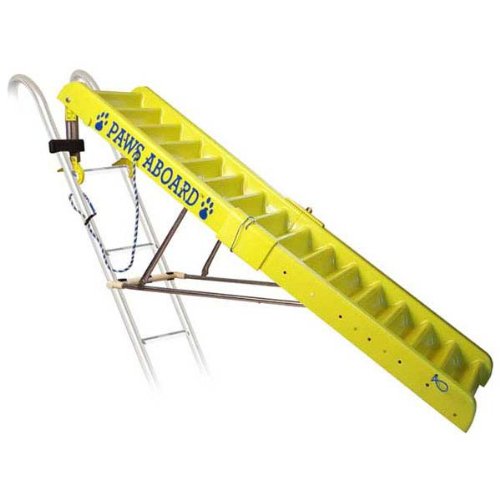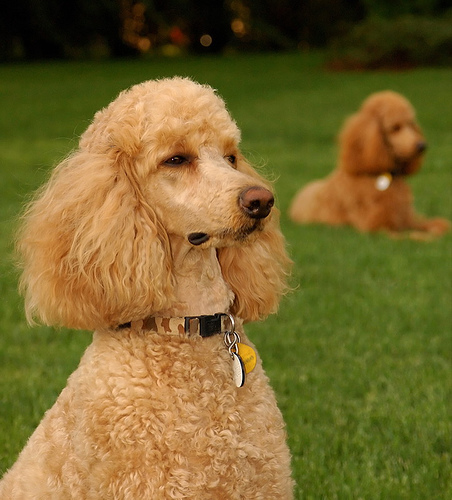
Camping is a great way to take a break from work and busy schedules while having a chance to swim, hike, and hang out in the woods; for many dogs, this sounds like an ideal outing! Some of our dogs would like nothing better than to run around in the brush, finding interesting things to sniff and roll in. In the warm season, camping is an excellent bonding activity, and a lot of fun! Not all dogs would be thrilled to be in the woods though: Reef, our Pit Bull, was slightly horrified when we took her to Vermont last summer. She tried to sit on the picnic table instead of the ground the entire time, and missed sleeping on the pillows of our bed during the day. So know your dog; if you have the kind of dog who will enjoy the outdoors, it抯 sure to be a blast for both of you!
Dog-friendly campgrounds almost universally require that your dog be kept leash (max. length ranges from 6-10 feet) at all times; that you pick up after your dog; that your dog stay quiet and non-aggressive. Most prohibit pets from being in certain communal and day-use areas. All will require proof of current rabies vaccination. All pretty basic guidelines, right? Some additional tips, gleaned from our experiences, to make your trip run smoothly:
Please be realistic with yourself about your dog抯 behaviors. If he is a barker, consider how disruptive that will be (and that noise disruption may result in a campground asking you to leave). If he is ever human- or dog- aggressive, be prepared to handle potential encounters and effectively control him. If you aren抰 100% capable of keeping her in check, think about other activities you can do together that will not put a strain on you and your dog.
Now that you抮e prepared for a camping adventure, you may wonder where to go. Some state parks allow dogs; Vermont and Virginia state parks, among others, are mostly pet-friendly. For private campgrounds, check out this site- you can search for pet-friendly campgrounds across the country.
Happy trails!
 Dog Boat Ladder
Using a dog boat ladder is a
Dog Boat Ladder
Using a dog boat ladder is a
 How to Treat and Prevent Infected Wrinkles in Wrinkly Dog Breeds
In humans, wrinkles are a us
How to Treat and Prevent Infected Wrinkles in Wrinkly Dog Breeds
In humans, wrinkles are a us
 Saying Goodbye to a Pet
On March 4th, 2016, we had t
Saying Goodbye to a Pet
On March 4th, 2016, we had t
 Hypoallergenic Dogs List - The Best Dog Breeds For People With Allergies Or Asthma
Dogs For People With Allergies Or Asthma
Whenever I
Hypoallergenic Dogs List - The Best Dog Breeds For People With Allergies Or Asthma
Dogs For People With Allergies Or Asthma
Whenever I
 My Dog Jumps Up On People
The doorbell rings and next
My Dog Jumps Up On People
The doorbell rings and next
Copyright © 2005-2016 Pet Information All Rights Reserved
Contact us: www162date@outlook.com